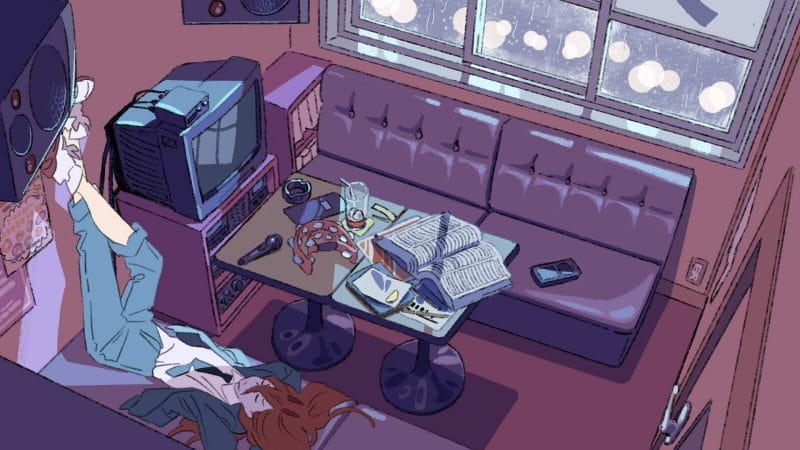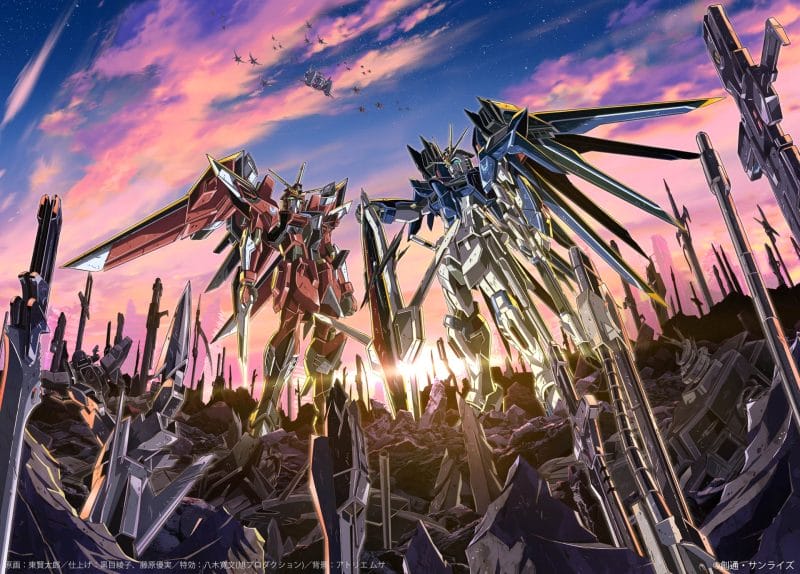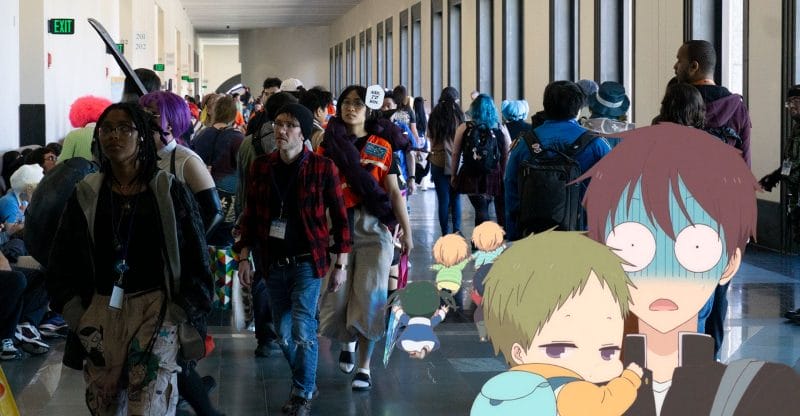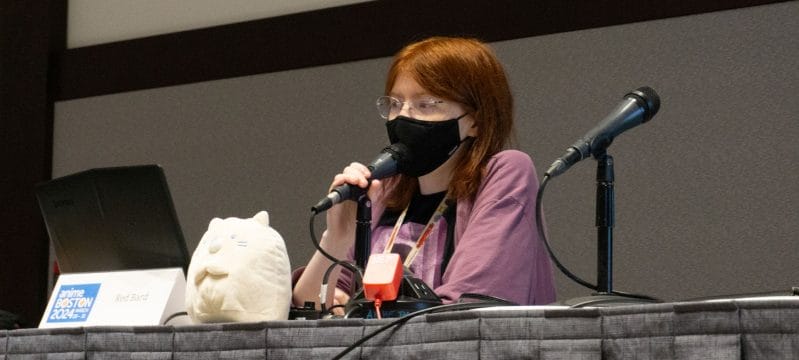 Yesterday, Anime News Network reported that the Harris County District Clerk’s Office released a number of legal documents revolving around ADV Films. One particular document, which details the ADV Films v. ARM Corporation case, is making a particular splash around the anime world, as it contains a complete licensing agreement between ADV, ARM, and Aniplex for the series 009-1. In addition, this document lists a total of twenty-nine titles that ADV acquired, as well as the prices that the company paid to acquire each title.
Yesterday, Anime News Network reported that the Harris County District Clerk’s Office released a number of legal documents revolving around ADV Films. One particular document, which details the ADV Films v. ARM Corporation case, is making a particular splash around the anime world, as it contains a complete licensing agreement between ADV, ARM, and Aniplex for the series 009-1. In addition, this document lists a total of twenty-nine titles that ADV acquired, as well as the prices that the company paid to acquire each title.
The revelation provides a rare glimpse into a world that is often shrouded in secrecy to many anime fans. License agreements, from their monetary costs to the contracts through which they are forged, are often referred to in vague terms. Sometimes, a representative will state whether a show did well or whether it died at market, and other times they may refer to rider titles: show licenses that are tacked onto licenses for more desirable products. So, before we go further, I’d like to reveal the list of titles, ordered by date of acquisition and title.
| Title | Date of Acquisition | Cost |
|---|---|---|
| Guyver | 6/1/2006 | $746,665 |
| Comic Party Revolution | 6/10/2006 | $30,336 |
| Jinki:Extend | 6/10/2006 | $91,000 |
| Pani Poni Dash! | 6/30/2006 | $138,666 |
| Utawarerumono | 8/1/2006 | $109,201 |
| Moeyo Ken | 9/25/2006 | $43,335 |
| Coyote Ragtime Show | 9/25/2006 | $224,000 |
| UFO Ultramaiden Valkyrie | 9/25/2006 | $21,335 |
| Air Gear | 10/20/2006 | $780,000 |
| Ghost Train/Synesthesia | 10/24/2006 | $58,668 |
| Le Chevalier D’Eon | 10/24/2006 | $440,000 |
| Nerima Daikon Brothers | 10/25/2006 | $124,800 |
| Sgt. Frog | 11/10/2006 | $408,000 |
| Kurau: Phantom Memory | 12/4/2006 | $960,000 |
| 009-1 | 12/21/2006 | $325,000 |
| Ah! My Goddess: Flights of Fancy | 2/7/2007 | $516,000 |
| Magikano | 3/31/2007 | $65,000 |
| Pumpkin Scissors | 3/31/2007 | $780,000 |
| Red Garden | 3/31/2007 | $660,000 |
| Welcome to the NHK | 3/31/2007 | $240,000 |
| Innocent Venus | 4/12/2007 | $120,000 |
| Xenosaga | 4/12/2007 | 120,000 |
| Project Blue Earth SOS | 5/1/2007 | $180,000 |
| Tokyo Majin | 5/1/2007 | $780,000 |
| The Wallflower (Yamato Nadeshiko Shichi Henge) | 6/11/2007 | $500,000 |
| Air TV Series | 6/27/2007 | $145,000 |
| Moonlight Mile | 6/27/2007 | $156,000 |
| Air: The Movie | 7/4/2007 | $20,000 |
| King of Bandit Jing in Seventh Heaven | 7/26/2007 | $50,000 |
| Shin Angyo Onshi | 7/26/2007 | $130,000 |
At a glance, a number of these titles seem like absolute steals, while others appear to be financial boondoggles. Twenty thousand for the Air film and thirty large for Comic Party seem to be the biggest bargains of the bunch, due to their low break-even point, and generally strong performance in the market. At the same time, Kurau: Phantom Memory, Tokyo Majin, and Pumpkin Scissors are fool’s buys in retrospect. The nearly one-million dollar price tag on Kurau is especially egregious, as the title wasn’t going to be an Evangelion, Naruto, or One Piece at the outset.
Looking at the totals alone, one could derive a tale of two companies that struggled for dominance. The first is an organization that was shrewd on the titles that mattered, while the second was prone to spending that would lose more money than a sailor on shore leave. The court documents tell a completely different story.
According to ADV’s complaint (PLAINTIFF’S ORIGINAL PETITION AND APPLICATION FOR TEMPORARY RESTRAINING ORDER), Sojitz had placed three employees into ADV’s office: Kozo Mizushima, Nario Hada, and Shinji Ueda shortly after ADV and Sojitz joined in a strategic alliance. Mizushima was appointed as ADV’s Chief Strategic Officer, Hada became the Chief Financial Officer, and Ueda took the role of business analyst. According to ADV, Sojitz breached their contract by doing so, as both ARM and JCI were “mere alter-egos” of their parent companies. The three allegedly assumed control of ADV, as they worked with Sojitz and ARM to direct acquisitions and dictate higher prices than the titles were worth.
By doing so, ARM ensured that they would receive higher fees from ADV for all acquisitions, and increase their overall leverage within the company. According to the complaint, Sojitz was trying to forge deals with other another party when ADV was unable to pay. ADV argued that Sojitz forced them to sign term sheets, which stated that Sojitz would have all control over deals being made. The company threatened ADV, stating that they would withdraw support if ADV failed to agree to the deals being made by Sojitz. At this time, ADV was speaking with a bank regarding loan payments. The deals with the third party were never realized, and ADV was unable to make its loan payments.
So, in a nutshell, ADV’s complaint argues that Sojitz entered the agreement to make a quick buck. They did everything possible, which included overpaying for titles that would not sell (see: Kurau), in order to wring as much money from ADV as possible. ADV’s default left the company richer with a large number of fees paid, a sizeable debt that could be capitalized on, and a large number of licenses that could be re-sold to the highest bidder.
Of course, every story has two sides, and Sojitz fired a counter-suit against ADV. According to Sojitz, ARM and ADV entered a Facility Agreement (Loan Agreement), which gave ADV a credit of ¥974,185,000. One of the sections of this agreement stated, in no uncertain terms, that all transactions that used that funding would need approval by ARM, in order to be executed. Each acquisition would need to be paid for in a series of monthly payments, with the first payment coming due six months after the date of license. Because of the agreement with ADV, ARM alleges that they could be held liable for any title ADV licensed, and therefore paid maximum royalty to avoid further liabilities from the licensors. However, ADV’s inability to sell that much product led to diminished returns to ARM and Sojitz. Due to the inability of ADV to pay their obligations, ARM alleges that ADV couldn’t possibly pay a cash settlement to them in the case of a victory, the two postponed court proceedings at this point, and instead entered a Security Agreement, which ensured that ARM would maintain a stake in the assets that came from license sales.
An affadavit from Ueda sheds more light on the story, as he tells a tale of corporate incompetence. According to Ueda, when ARM and Sojitz demanded that the properties licensed with their funds be returned, they received incomplete sets of materials. Art and extras were missing, tapes in the master storage were unable to be found. The company allowed employees to check tapes out, though they didn’t always return them, leading to a scattering of casettes through numerous offices. The company’s server, which held all scripts and artwork, was supposed to be kept in an air-conditioned room. It was allegedly left running in a closet. Off-site storage facilities for extra production materials, which were to be climate controlled, were supposedly not kept cool, and were “uncomfortably warm, despite the fact that the weather was relatively mild.”
From ARM’s point of view, the company did everything in order to protect its investments. The company set payment schedules for ADV to follow, which they failed to do so, and they paid high license prices to ensure that future liabilities wouldn’t harm the organization down the road. Attempts to retrieve titles shone light upon the poor storage conditions that ADV kept, to the point that numerous tapes were still missing at the time of filing.
As with any court case, there are grains of truth hidden amongst numerous layers of hearsay. We do know for a fact that ADV and ARM entered an agreement to secure funding. We now know that ADV found itself overpaying for numerous unprofitable licenses, to the point that they wouldn’t be able to profit off of the property. We also know that ADV became insolvent and had to return their properties to ARM and Sojitz.
We know, through Ueda’s affadivt, that he was custodian of ARM’s regards to their dealings with ADV. We are aware that the credit line from ARM totaled ¥974,185,000 ($12,787,931.66), and that ADV spent a total of $10,556,000. ADV managed to pay back $1,592,994, leaving a total balance of $8,963,006 when the company defaulted. We also know that, upon default, he went to ADV’s headquarters with a constable to retrieve repossessed property, and the Constable that accompanied him was unable to find entire shows, which included Air TV, Venus vs. Virus, and Kanon TV.
From the rest, anything further that we can say is speculation. The case was settled out of court, and no formal verdict was given. I could easily mish-mash the two stories into a cohesive whole, but to do so woud merely feed the flames that had already been stoked, and inspire more ire among people alike. The full story, though, needed to be told from both sides. it’s easy to say that ADV was screwed over, or that ARM was protecting its own bacon in this matter. However, when the facts are lain out, it’s easy to see that this is more of an amorphous grey area that will not be told in any better ways than we’ve seen in these court documents.
[Thanks to Prede at FandomPost for the initial analysis of the ADV situation]











